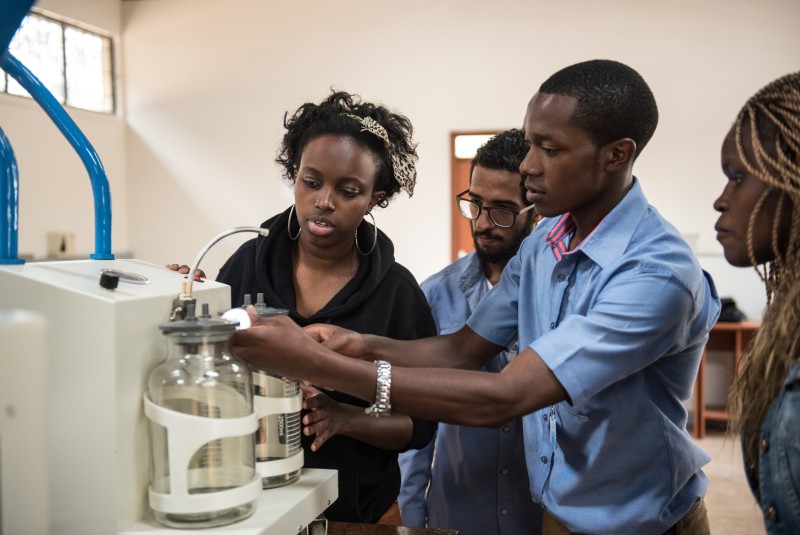By Irene Gaitirira
Published September 25, 2015
 Kenya has ahead of the United Nations Summit for the Adoption of the Post-2015 Development Agenda launched a programme to help save lives and improve the health of pregnant women and children.
Kenya has ahead of the United Nations Summit for the Adoption of the Post-2015 Development Agenda launched a programme to help save lives and improve the health of pregnant women and children.
RELATED: Philips Unveils World Class Intensive Care Unit in Kenya
Under the East African country’s Ministry of Health in collaboration with UNICEF and The Philips Foundation, Kenya is set on facilitating what is referred to as “the development of innovative health technology and solutions in the field of maternal, newborn and child health.”
This comes at a time when Kenya still falls short of the Millennium Development Goal 4 target of 33 by the end of 2015. Neonatal mortality is also too high at 22 deaths per 1,000 live births. Kenya’s under-five child deaths per 1,000 lives fell from 90 in 2003 to 52 in 2014. The cause of these deaths is mainly the lack of medical equipment and technology to support even the most basic interventions for pregnant women and their newborns, especially in remote areas where health care workers lack essential medical resources.
RELATED: Kenya Fights Back to Save US$163 Million Lost in Traffic Accidents Annually
Kenya is aiming at developing and scaling up innovative, low-cost and locally designed healthcare devices that will contribute to improved and more equitable access to life-saving quality care for women and children across the country by 2018.

“For a million babies worldwide every year,” says Sharad Sapra, UNICEF Director of the UNICEF Global Innovation Centre, “their day of birth is also their day of death. But with strengthened health systems and innovative solutions for both mothers and children, the chance for survival is greatly increased.”
This Maternal and Newborn Health Innovations Project is financed by The Philips Foundation and uses the local expertise of Philips Research Africa in Nairobi to mentor social entrepreneurs and facilitate the transfer of healthcare technology know-how in Kenya.
RELATED: BBC Africa Debate to Discuss Failed Health Systems in Africa
 “At The Philips Foundation, it is our belief that programmes that combine innovation, partnerships and empowering people will make a lasting and meaningful difference in communities,” says Katy Hartley, Head of The Philips Foundation. “In the case of the Maternal and Newborn Health Innovations Project, we are doing just that, as Royal Philips can offer expertise and support from its Philips Research Africa, together with UNICEF and our implementation partners, to enable social entrepreneurs to improve health outcomes for their own communities.”
“At The Philips Foundation, it is our belief that programmes that combine innovation, partnerships and empowering people will make a lasting and meaningful difference in communities,” says Katy Hartley, Head of The Philips Foundation. “In the case of the Maternal and Newborn Health Innovations Project, we are doing just that, as Royal Philips can offer expertise and support from its Philips Research Africa, together with UNICEF and our implementation partners, to enable social entrepreneurs to improve health outcomes for their own communities.”
Saying Royal Philips and The Philips Foundation share the same mission and vision, Hartley says, “we want to improve people’s lives and we strive to make the world healthier and more sustainable through innovation.”
The UN’s Summit for the Adoption of the Post-2015 Development Agenda shall be held September 25-27, 2015. Here, UNICEF, the world body’s agency for children, shall be promoting greater involvement of the private sector in improving children’s lives.
RELATED: Youth Engagement and Socio-Cultural Integration in East Africa
The Millennium Development Goals, that expire at the end of 2015, shall be replaced by the Sustainable Development Goals (SDGs) that represent a new set of targets for international development.




